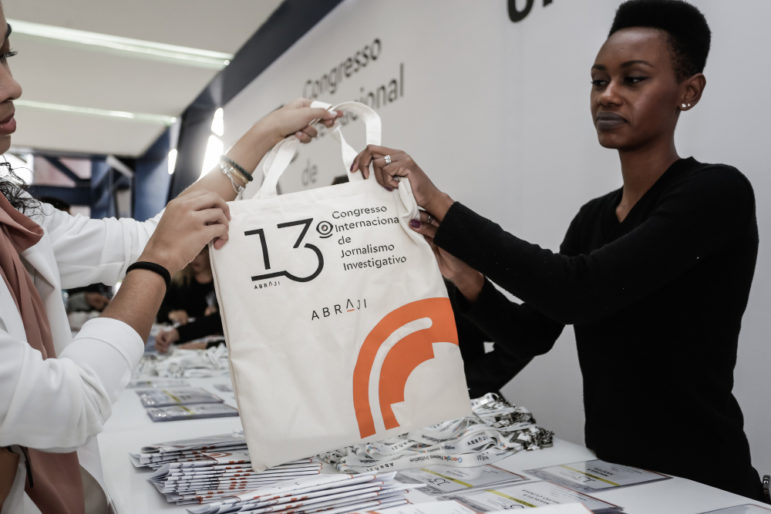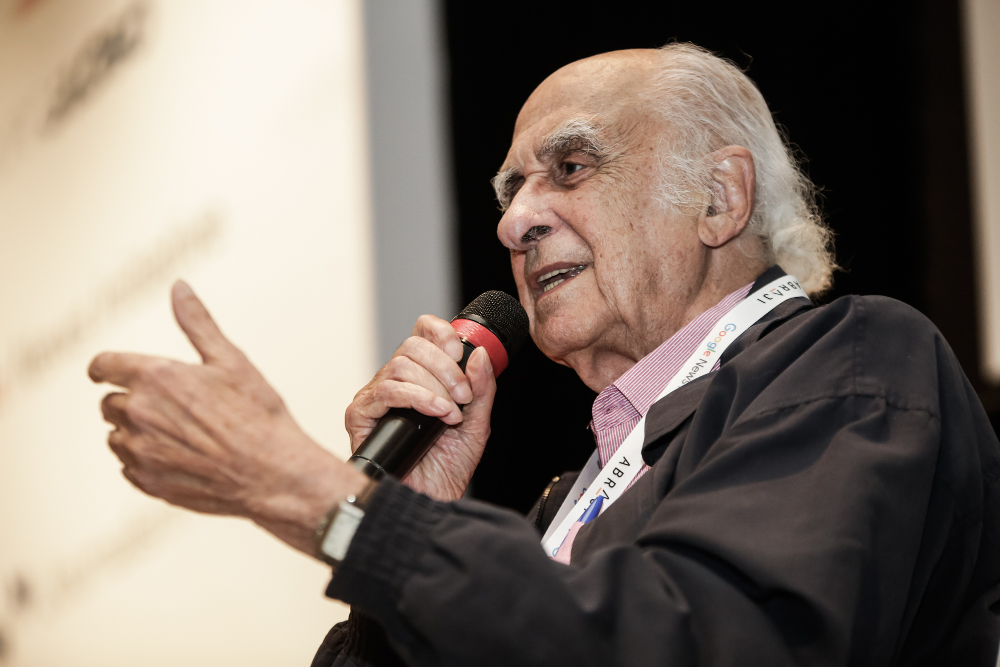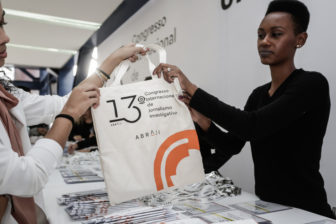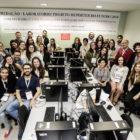

Brazil: Anti-Disinformation Campaign Launched at Abraji Conference

Renowned: The 13th International Congress of Investigative Journalism honored Brazilian journalist Zuenir Ventura, who is chair of the Brazilian Academy of Letters. Photo: Abraji.
A collaboration of 24 media outlets which will fight disinformation in Brazil in the run-up to the country’s October elections was announced at the 13th International Congress of Investigative Journalism. Hosted by the Brazilian Association of Investigative Journalism (Abraji), the conference was held in São Paulo from June 28-30.
US researcher Claire Wardle, director of the Information Disorder Project and First Draft, told the gathering of more than 750 people about the launch of Projeto Comprova (Evidence Project), which will be supported by the Harvard University-affiliated First Draft.
The conference opened by honoring renowned Brazilian journalist Zuenir Ventura, the 32nd chair of the prestigious Brazilian Academy of Letters. Known as one of the greatest Brazilian reporters of all time, Ventura wrote several books, including Divided City, a 1994 book about poverty in Rio de Janeiro.
Daniel Bramatti, the president of Abraji, noted that the 2018 congress – which covered fake news, collaboration, safety and diversity in newsrooms over its 70 panels and 22 courses and workshops, led by 154 speakers — underscored the value of the profession at a time when it is being “attacked by people interested in making journalism lose importance.”

Big in Brazil: Abraji’s 13th conference brought in an impressive 750 people to over 90 panels and workshops.
Abraji’s vice president Guilherme Amado led a panel about the global impact of Operation Lava Jato (Car Wash) — the corruption case which began in Brazil and spread throughout Latin America and the United States, causing the arrest and resignation of presidents — while Venezuelan editor Joseph Poliszuk, of Venezuelan investigative portal Armando.info, spoke of his experience of journalism in exile. He and three other colleagues left the country after publishing reports which revealed the connections of a businessman to the government’s program to fight hunger. Sued for defamation and left with little chance of winning, the journalists were forced to leave Venezuela.
Meanwhile, American Jason Reich, director of global safety at BuzzFeed, talked about how to deal with cyber-bullying, a growing phenomenon in Brazil.
“If you’re a good journalist,” said Reich, “you’re naturally going to make some people angry, but despite these somber times, there are ways to protect yourself. One is to incorporate the ‘bad guy’ and try to find as much public information about you in an anonymous internet tab. It is through this reverse path that you will begin to protect yourself.”
Angelina Nunes, coordinator of the Tim Lopes Program, an Abraji project created to prevent violence against journalists, spoke about the first year of the program, which was inspired by IRE’s Arizona Project. The goal is to track investigations about the murder of journalists in Brazil and to create a collaborative newsroom which is able to continue with the stories of the victims.
More coverage at the Abraji conference blog (in Portuguese).
 Repórter do Futuro (Future Reporter) is run by the NGO Instituto Oboré. The group covers the Abraji conference with the goal of training young reporters to work in a real newsroom. This year more than 30 young reporters were involved with the program.
Repórter do Futuro (Future Reporter) is run by the NGO Instituto Oboré. The group covers the Abraji conference with the goal of training young reporters to work in a real newsroom. This year more than 30 young reporters were involved with the program.









